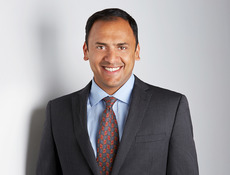We believe that building a robust ecosystem of impact investing stakeholders is the key to making a sustainable change in this field, be it in Germany or at an international setting. We have been pioneering this in Germany by setting up the National Advisory Board that united more than 40 experts from 36 organisations within the social, financial, philanthropic, public and academic sectors, thus broadening both, its own scope as well as the acceptance of the concept of Impact Investing in Germany. This loose coalition was formalised under the German Impact Investing Initiative.
At the international level, we partner with the Schwab Foundation/ World Economic Forum for Uplink, a digital platform to crowdsource innovations, in an effort to accelerate the delivery of the UN Sustainable Development Goals (SDGs). Our own study of more than 150 online platforms for impact investing has shown that impact platforms do not cooperate with each other even though the benefits of sharing data is huge. Uplink attempts to solve this problem by bringing the stakeholders together at a meta level. It brings together the best innovators to networks of decision-makers, who can implement the change needed for the next decade. As a global platform, UpLink serves to aggregate contributions and impactful activities, to guide and align pockets of activism and entrepreneurialism, and to make connections for effective collaboration.
The last area of focus we have is on Family Offices and impact investing. We see Impact Investing has become attractive within wealthy families and the family office community. Families have a greater flexibility and agility as well as a different perspective on their own fiduciary responsibilities. In principle, family capital is perfectly placed for the allocation towards impact investment, especially in those early-stage, higher-risk undertakings that might not otherwise be well-positioned as ‘first investment’ from the likes of more mainstream investors. Read more about this emerging field in our white paper.




